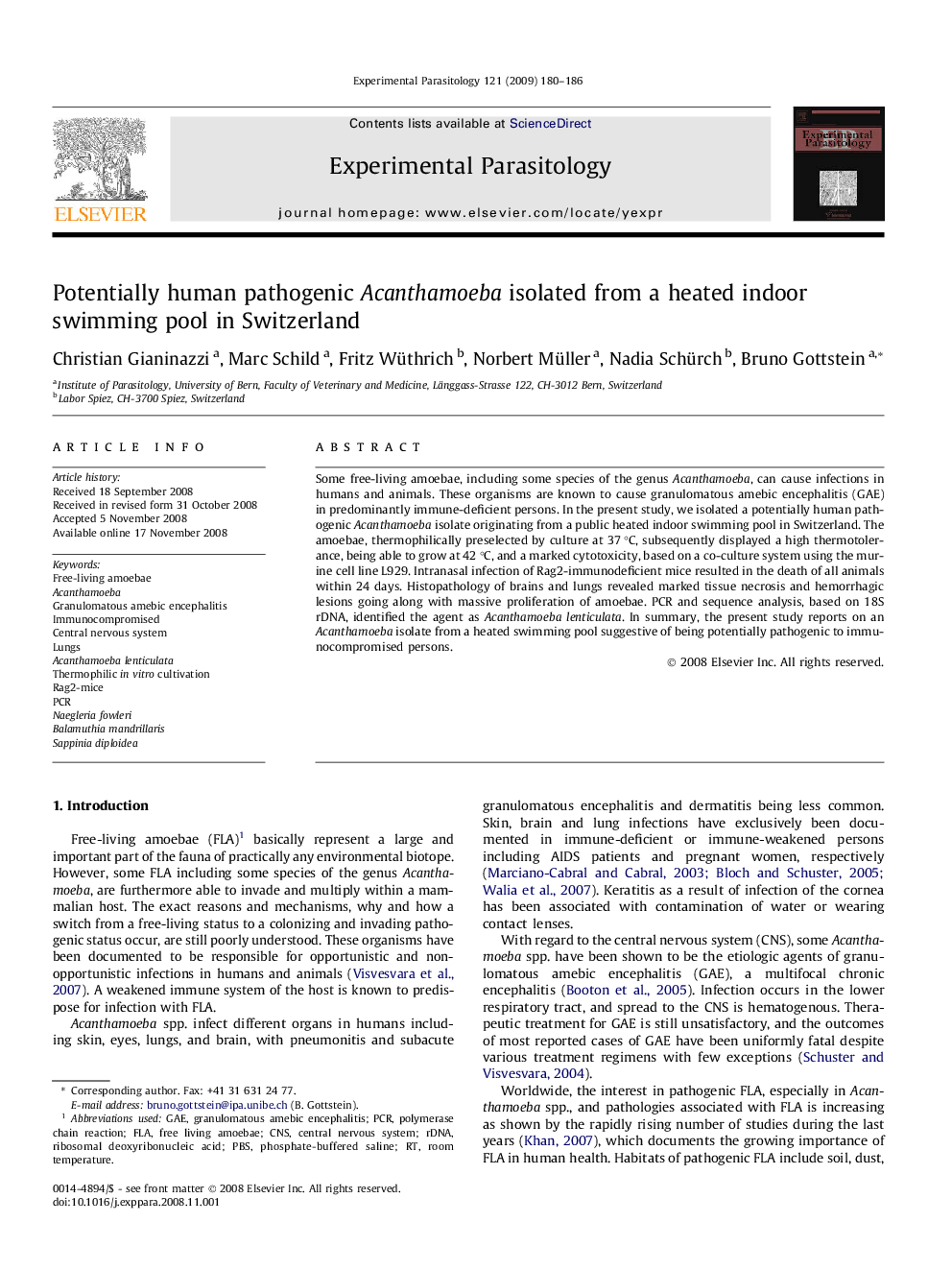| Article ID | Journal | Published Year | Pages | File Type |
|---|---|---|---|---|
| 4371362 | Experimental Parasitology | 2009 | 7 Pages |
Some free-living amoebae, including some species of the genus Acanthamoeba, can cause infections in humans and animals. These organisms are known to cause granulomatous amebic encephalitis (GAE) in predominantly immune-deficient persons. In the present study, we isolated a potentially human pathogenic Acanthamoeba isolate originating from a public heated indoor swimming pool in Switzerland. The amoebae, thermophilically preselected by culture at 37 °C, subsequently displayed a high thermotolerance, being able to grow at 42 °C, and a marked cytotoxicity, based on a co-culture system using the murine cell line L929. Intranasal infection of Rag2-immunodeficient mice resulted in the death of all animals within 24 days. Histopathology of brains and lungs revealed marked tissue necrosis and hemorrhagic lesions going along with massive proliferation of amoebae. PCR and sequence analysis, based on 18S rDNA, identified the agent as Acanthamoeba lenticulata. In summary, the present study reports on an Acanthamoeba isolate from a heated swimming pool suggestive of being potentially pathogenic to immunocompromised persons.
